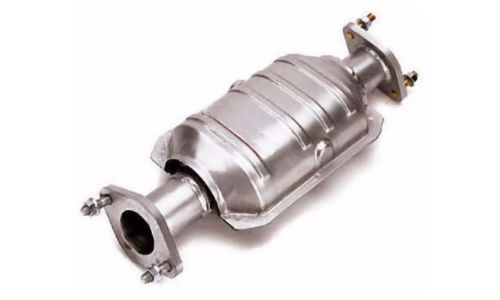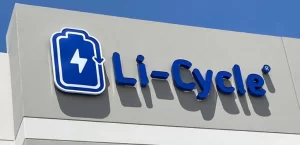By Jeff Sanford
Toronto, Ontario — May 4, 2016 — Every auto recycler knows there’s money to be made in recycling the precious metals included in catalytic converters. However, some of those cats might be getting left behind, according to Becky Berube from United Catalyst Corporation. Berube says many catalytic convertors are simply left on the car and get crushed into scrap, a practice akin to leaving money on the table.
Each catalytic converter contains several grams of platinum, palladium or rhodium, metals that are useful for reducing emissions. Cutting them off, tossing them in a bin and then selling them as a lot to a company like United Catalyst will generate some extra cash.
“It’s not an auto part, once it’s recycled it becomes a commodity,” says Berube.
She went on to note that in one tonne of cat converters (about 1,000 individual units) there are roughly 2.2 lbs. of these metals. If you consider there are eleven million end-of-life vehicles in North America today, there is—at current prices—about $1.2 billion worth of these metals in the recycling industry. This is the single largest source of these metals.
“There are only three refineries of this stuff. Three companies control 90 percent of the supply,” says Berube. That is, there is not a lot of new stuff that comes into the market. Much of what is used to manufacture new catalytic converters comes from the recycling sector. “I’m trying to teach recyclers that they own the supply and need to leverage that. Look at it like steel. Participate in the market of the resource that you own. I want recyclers to understand, you, as recyclers, own the whole supply of this commodity.”
The company Berube works for pays for cats on an “assay-based” method. “Assay” is a mining term for determining the concentration and amount of a resource in, say, a rock sample. Breaking down cats and selling the palladium, platinum and rhodium as pure commodity can be profitable. De-canning cats and selling the recovered metal as a commodity is a relatively new revenue stream available to recyclers. “This is not a service that was available to you three or four years ago,” she says.
During the late 2000s commodity markets were booming and so it became much more profitable to harvest the precious metals in catalytic convertors. So profitable were these metals, thieves even started stealing catalytic converters off of new cars to sell for scrap.
Of course, commodity markets have plunged since 2008. According to Berube, platinum has plunged as much as 35 percent and rhodium is down 45 percent, but there is an interesting story emerging in just the last few months.
Some analysts in commodity markets have talked about a possible recovery beginning to take place. Market commentators note that prices of commodities in general seem to have firmed up and are no longer falling, and are, in some cases, beginning to rise.
Interestingly, checking both platinum and palladium prices, we find these commodities have risen about 19 percent and 12 percent respectively over the last few months. Platinum and palladium have been outperforming gold and silver of late. In the case of palladium the price has risen by almost 10 percent in just the last 30 trading days. The two precious metals now trade around $1,050 an ounce and $624 an ounce, respectively.
Long story short, this is good news for auto recyclers. Your cats should sell for more today than they did even a few short weeks ago.





















